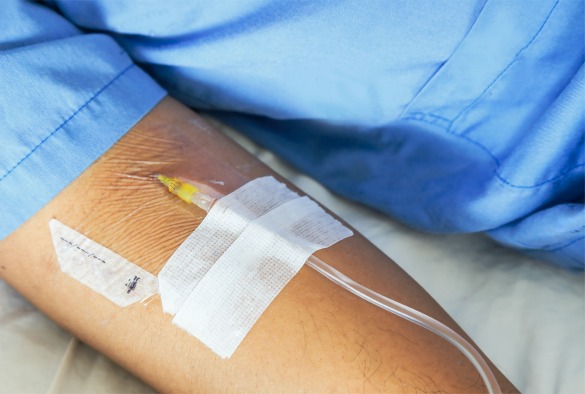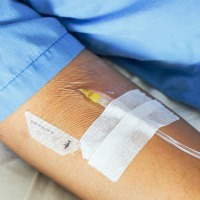
Groundbreaking work by a team at the University’s Institute of Translational Medicine (ITM) has led to a change in international guidelines of Plasma Exchange treatment.
A research group led by Senior Lecturer in Pain Medicine Dr Andreas Goebel, based at ITM’s Pain Research Institute, investigated whether an autoimmune mechanism was responsible for causing an intractable chronic pain condition ‘Complex Regional Pain Syndrome’ (CRPS).
A chronic systemic disease CRPS is characterised by severe pain in a limb, swelling, and changes in the skin.
Unique auto-antibodies
Dr Goebel’s team, in collaboration with teams at the University of Pecs, Hungary and University College London, found that most CRPS patients had unique auto-antibodies that alter sensory nerve function.
These findings suggested an auto-antibody contribution to CRPS.
The team took these results and treated CRPS patients with plasma exchange treatment, at the Walton Centre NHS Foundation Trust in Liverpool, to reduce autoantibody serum-levels.
Significant pain relief
Plasma exchange can reduce the amount of abnormal protein in the blood. In this treatment, blood is extracted through a cannula in a vein in the arm. The abnormal plasma is then separated out by a machine and replaced with a plasma substitute. The blood is then returned to the body through a cannula in a vein in the other arm.
Some patients responded and had significant, meaningful pain relief for the first time in many years. Other teams around the world have since reproduced these observations.
Based on the team’s work, the American Society for Apharesis (ASFA) has now included CRPS into the list of indications for plasma exchange treatment. ASFA Guidelines are the main reference for Plasma Exchange treatment worldwide.
Benefitting patients
Dr Goebel, said: “This is a fantastic example of how translational research can achieve benefit for patients; our work has highlighted, that peculiar autoimmune processes can cause severe chronic pain, without causing tissue destruction.”
The findings could also provide hope for patients suffering from other unexplained chronic pains, or symptoms such as fatigue.
Dr Goebel adds: “A lot of work is still required. We need additional trials. We would also like to find ways to treat patients effectively with a simple oral drug, or an injection. It is rewarding to see, that as a result of this work patients around the world with unrelenting, severe pain can benefit.’
The ITM’s Pain Research Institute aims to support people who conduct research into the causes and best treatments of human chronic pain.
